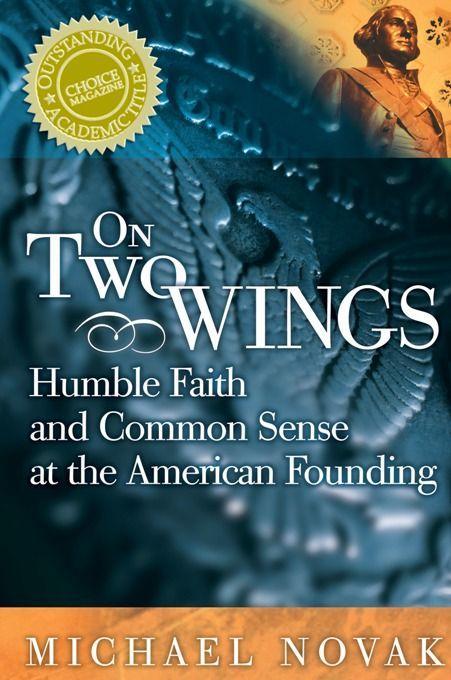
Zustellung: Di, 05.08. - Sa, 09.08.
Versand in 3 Wochen
VersandkostenfreiThe author of several prize-winning books on theology and philosophy maintains that our nation's founders believed that liberty depended on certain habits of the heart--and that these, in turn, depended on faith as well as reason.
Produktdetails
Erscheinungsdatum
01. August 2003
Sprache
englisch
Auflage
Expanded edition
Seitenanzahl
266
Autor/Autorin
Michael Novak
Verlag/Hersteller
Produktart
kartoniert
Gewicht
422 g
Größe (L/B/H)
230/154/20 mm
ISBN
9781893554689
Pressestimmen
From Amazon: "In one key respect, the way the story of the United States has been told for the past one hundred years is wrong," writes Michael Novak. "To read most philosophers and historians of the American polity today is to learn that America is an historical embodiment of secular philosophy, the Enlightenment." Nothing could be further from the truth, says Novak, who sets out to demonstrate just how important religious faith was to the founders. He makes a spirited case, noting, for example, that the very first act of the First Continental Congress, in 1774, was to make a public prayer. Of the 3,154 "citations in the writings of the founders," 34 percent are to the Bible. He provides dozens of similar examples. On Two Wings does not proceed as a traditional narrative; Novak favors extensive block quotations from his sources and conveys a whole chapter in question-and-answer format. In addition, a major part of the book is an appendix that provides brief sketches of the lesser-known founders. What the book lacks in narrative elegance it makes up for in forceful argument-- it pulls off the trick of being both brief and thorough. Readers who admire Founding Brothers by Joseph Ellis will appreciate this book, especially if they are religiously inclined. --John Miller --This text refers to the Hardcover edition.
From Libary Journal: Novak (religion and public policy, American Enterprise Inst.; Belief and Disbelief) argues that religion played a central role in the lives of, and the documents by, the founders of the American republic. He further attempts to show how Washington, Jefferson, Madison, and others had in common a "humble faith." He is most convincing when presenting evidence that biblical language and allusions permeated the writings of these leaders but is less successful in showing that the religion they thought useful for others also held personal importance for them. The book is weakened by a definition of religious faith so broad that "humble f
From Libary Journal: Novak (religion and public policy, American Enterprise Inst.; Belief and Disbelief) argues that religion played a central role in the lives of, and the documents by, the founders of the American republic. He further attempts to show how Washington, Jefferson, Madison, and others had in common a "humble faith." He is most convincing when presenting evidence that biblical language and allusions permeated the writings of these leaders but is less successful in showing that the religion they thought useful for others also held personal importance for them. The book is weakened by a definition of religious faith so broad that "humble f
Bewertungen
0 Bewertungen
Es wurden noch keine Bewertungen abgegeben. Schreiben Sie die erste Bewertung zu "On Two Wings" und helfen Sie damit anderen bei der Kaufentscheidung.








